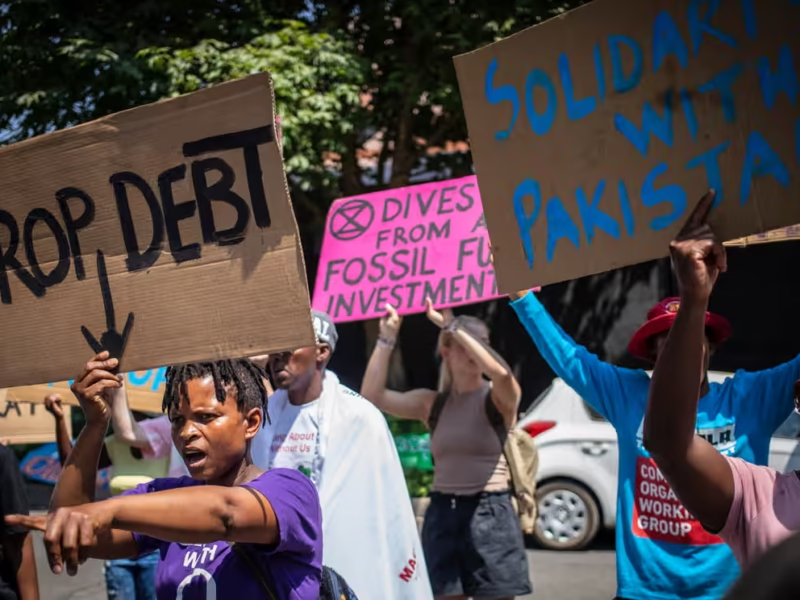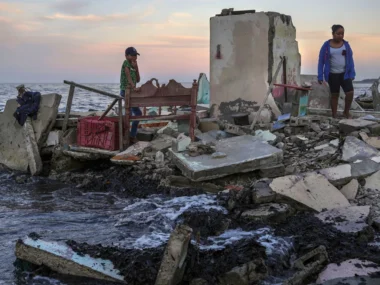Exclusive: Nations are facing difficulties in handling costly loans, with a significant portion of the debt negotiated through London.
Diplomats from eight southern and eastern African nations have signed a letter urging the UK government to support a private member’s bill designed to accelerate debt restructurings. These restructurings are needed as economic crises have left countries unable to repay loans.
Several global events have severely impacted the economies of poor countries, such as the coronavirus pandemic, which slowed growth; the Russian invasion of Ukraine, which triggered high inflation; and rising US interest rates, which increased the cost of international loans to unsustainable levels.
Countries like Zambia, Sri Lanka, and Ghana have defaulted on their overseas debts since 2020.
Countries unable to meet debt obligations must negotiate loan reductions or extensions with lenders, including state-run development banks from China, the US, and Europe. This process, called debt restructuring, is becoming more common among poorer nations, especially as they face loans from private banks and international bonds owned by Western companies, which are typically more expensive. The International Monetary Fund (IMF) and World Bank usually provide concessional loans, avoiding the need for debt write-downs.
The UK bill, introduced by Labour MP Bambos Charalambous in November 2024, aims to “prevent private creditors from suing countries during debt relief negotiations and from demanding higher repayments than other creditors,” according to a letter sent to UK Chancellor Rachel Reeves in March, shared exclusively with the Guardian.
On average, developing countries are allocating 9.5% of their government revenues to debt repayments, double the figure from a decade ago. The poorest countries are spending up to 15%, according to the UN Development Programme. From 2012 to 2022, public spending on debt grew faster than health and education.
The letter emphasized that “90% of debt owed to private creditors by the world’s poorest countries is governed by English law and transacted through the City of London,” making UK government support crucial for effective debt relief.
Signatories of the letter include high commissioners from Zambia, Mozambique, and South Africa, which has prioritized addressing the “unprecedented debt crisis among many African nations” during its G20 presidency this year.
Charalambous expressed hope that the government would adopt the bill and noted meetings with Treasury minister Emma Reynolds. A UK government spokesperson stated that the UK supports private creditor participation in debt restructurings on comparable terms but is not currently pursuing legislation to enforce it, though the matter remains under review.
During the Covid pandemic, lending countries agreed to pause debt repayments, but private creditors in the West refused, straining relations with China.
Zambia halted international debt repayments in November 2020, and, along with Ethiopia and Chad, sought to restructure its loans in 2021 under a new G20 initiative called the common framework. However, delays plagued the process.
It took 17 months for Chad to reach a deal without reducing debt levels, partly due to protracted negotiations with commodities trader Glencore.
Chinese reluctance reportedly delayed Zambia’s deal with lending countries until 2023, at which point the countries rejected Zambia’s agreement with Western bondholders, deeming it better than their own deal. A bond agreement was eventually finalized in 2024.
Some officials argue that the UK bill addresses the previous issue of “vulture funds” buying up defaulted bonds to sue poor countries for payouts, but recent restructurings have faced delays due to the rise of new lenders, including Chinese state-run institutions and African multilateral trade banks.
Abebe Aemro Selassie, the IMF’s Africa director, expressed uncertainty over whether the new legislation would speed up restructurings, noting that private creditors were not the main obstacle in recent cases.
The inclusion of “collective action clauses” in most bonds since 2014 has prevented minority bondholders, often associated with vulture funds, from suing countries. However, Ethiopia’s negotiations to reduce the value of a bond have reportedly been delayed by a bondholder group.
In Zambia, Malawi, and Ghana, regional trade banks like Afreximbank and the Trade & Development Bank have refused to agree to loan reductions. These banks lend at high interest rates but are seeking to be excluded from restructurings, unlike the IMF and World Bank.
Frederique Dahan, a director at the think tank ODI, noted that non-bond private creditors are more challenging to address under the UK bill.
Malawi, with a GDP per capita of $580, has been struggling with climate and economic shocks, resulting in shortages of fuel, fertilizer, and medicine, while also seeking debt relief.
Thomas Bisika, Malawi’s high commissioner to the UK and a signatory of the letter, stated that the country’s unsustainable debt has severely hindered social and economic development.











